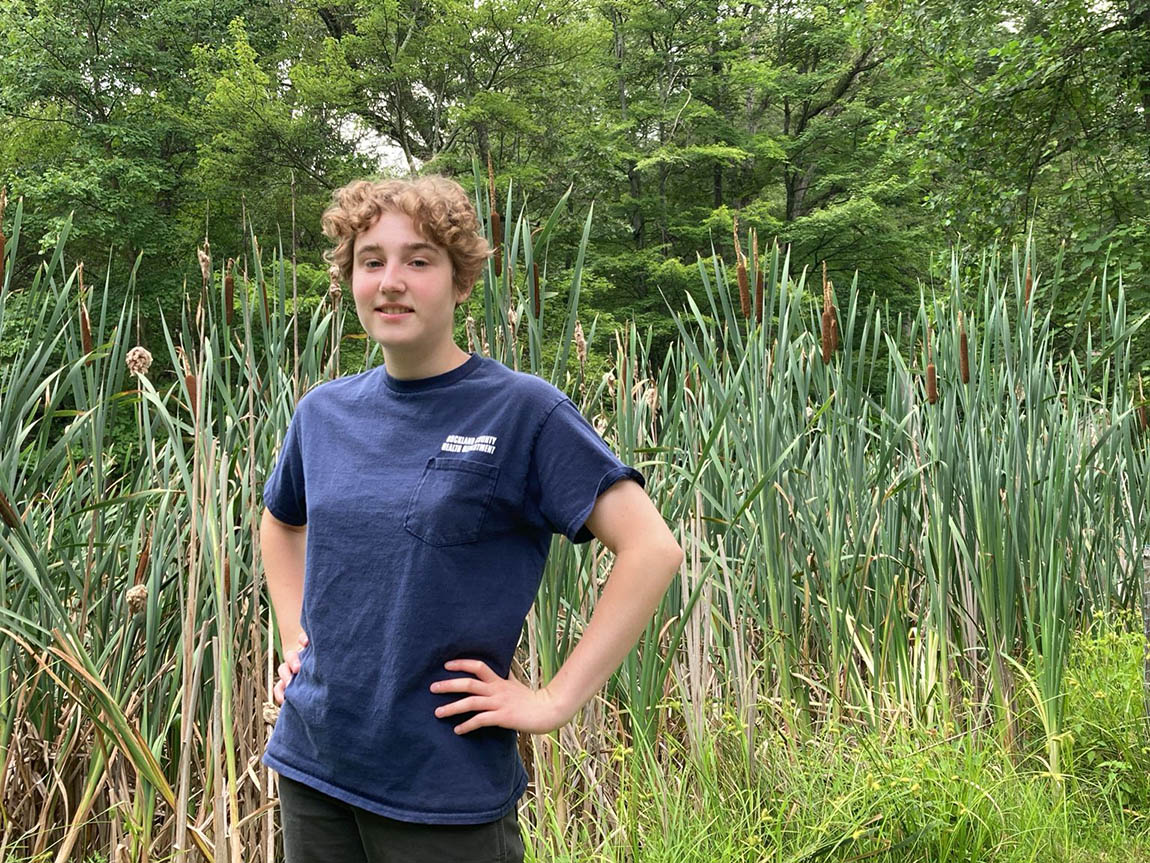Summer Check-In: Gideon Israel ’27 Gains Experience in Environmental Fieldwork
An environmental science and Jewish studies double major, Israel is spending a second summer working in mosquito control for the Rockland County (New York) Department of Health.Thursday, August 7, 2025 10:19 AM
 Gideon Israel ’27
Gideon Israel ’27Classes may not be in session, but Muhlenberg students are still hard at work — at internships and jobs, in the lab and in the field, producing creative works and engaging with their communities. Summer break is an opportunity for students to explore future pathways, unanswered questions, and avenues for impact. Discover what our students are up to this summer here.
Gideon Israel ’27
Hometown: New City, New York
Majors: Environmental science and Jewish studies
Why were you interested in this job with Rockland County's Department of Health?
I was interested in working for the Department of Health because my specific job in the mosquito control department falls under the Department of Environmental Health. This is a great entryway into the environmental sector and civil service jobs, which are both options I’m interested in. Working outside is one of the biggest draws of the job for me as well — full-time office jobs are not for me!
“This is a great entryway into the environmental sector and civil service jobs, which are both options I’m interested in. Working outside is one of the biggest draws of the job for me as well — full-time office jobs are not for me!”
What is a typical day like for you?
Mosquito control includes many different jobs. On a typical day, I work in “open breeding,” which means treating standing water where mosquitoes breed. Work starts at 7:30 a.m. I get my map and supplies for the day and usually work in a team with one coworker. We drive to the sites marked on our map and check the water for mosquito larvae. If we find any, we bag it up to be tested at the lab and then treat the water using biolarvicide. Small sites are treated by hand while larger sites require a backpack blower. Depending on the size of the sites, we usually visit 12 to 15 sites per day. We get two 15-minute breaks in addition to lunch and may get called back early if it’s too hot out to work safely. We are back at the office by 2:45 p.m. to put back our supplies and go over our work with our boss, and the day ends at 3 p.m.
“This experience has helped me confirm that I want to do environmental fieldwork. I have learned about so many kinds of jobs that I didn’t know existed before, and it’s made me strongly consider going into civil service or other government work in the future.”
How have you been able to make an impact?
Because this is a temporary summer job, the team changes from year to year. This year, as one of two returning workers (out of nine total), I’ve been able to make an impact by helping my new team members learn the ropes. There are many different aspects to the job that just require time to figure out so I’m happy to use my experience to help others. By being responsible, helpful, and friendly, I set an example for the team.
How is this experience shaping your understanding of what you want to do in the future?
This experience has helped me confirm that I want to do environmental fieldwork. I have learned about so many kinds of jobs that I didn’t know existed before, and it’s made me strongly consider going into civil service or other government work in the future.
At Muhlenberg, Israel is also a board member for enACT (or the Environmental Action Team) and part of Adamah (a Jewish environmental education, climate action, and community building group), and the Fellowship for Interfaith Learning and Leadership.
